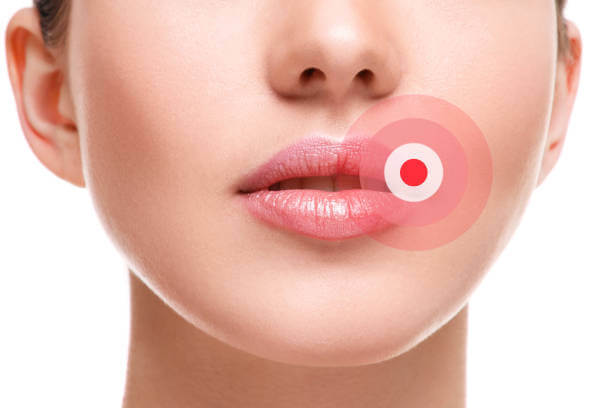Lips swelling is very common. Mild injury, warmth, allergies can cause it, chemical reactions (medicine, food), rubbing of upper and lower lips together (while biting upper teeth), drinking cold water, or eating spicy foods.
The best way to understand the causes of lip swelling is to be familiar with the symptoms. We will discuss the symptoms briefly and then get into the causes in more detail later on.
What are Swollen Lips?
Lip swelling occurs when the lips become enlarged. Lip swelling can occur at any age and for a variety of reasons. Various factors contribute to swollen lips, but the most common causes are infections and allergies.
Symptoms of Lips Swelling
There are many causes for swollen lips with different symptoms, including skin conditions and severe allergic reactions. It is essential for people with swollen lips to identify their specific symptoms and potential causes to receive appropriate treatment.
The following symptoms can also occur:
- redness
- soreness
- sensitive to the touch
- cracked skin
Swelling of the lips is commonly caused by an allergic reaction to substances in the environment, foods, or medications.
Causes of Lips Swelling
The lips can swell for various reasons. Dome of them include;
- The most apparent cause of swollen lips is trauma or injury to the lips and mouth area.
- Symptoms of allergic reactions, such as swelling of the lips, can often accompany food allergies, medication allergies, or other substances.
- Swollen lips (cheilitis) can also result from infections and inflammatory conditions of the skin.
- Other allergy-related symptoms may also occur, including hives and itching.
- An angioedema condition causes swelling of the tissues under the skin, usually around the eyes and lips.
- The herpes simplex virus (which causes cold sores) and other infections can cause blisters (or mild swelling of the lips).
- Occasionally, those who suffer from illnesses or conditions that affect their entire body may experience lip swelling, sometimes along with swelling in other parts of the body.
- Tooth extraction
Lips swelling is a condition that has a familiar and trivial cause, but it can also be a sign of something serious. If you’re concerned, don’t wait to get medical help, and try not to worry. Just remember that the course of treatment will vary depending upon the underlying cause.
Treatment for Lips Swelling
If the case is not severe, you can treat swollen lips at home. Here are some home remedies for swollen lips.
- Applying ice packs wrapped in towels can often reduce the swelling of swollen lips. However, never apply ice directly to the skin, as this can exacerbate the condition.
- If your lips are swollen due to sunburn, aloe vera lotion may relieve the condition. Lips that are extremely dry or cracked may benefit from a gentle moisturizing lip balm.
Aside from that, medical treatments can also be very effective. The use of nonsteroidal anti-inflammatory drugs (NSAIDs) such as ibuprofen (Advil) or corticosteroids may help lower swelling caused by inflammatory conditions. Also, NSAIDs may be helpful when your lips swell due to a bruise or another injury.
Depending on the condition, more invasive treatments may be required, such as focal dystonia. Doctors must administer botulinum toxin (Botox) injections with care for maximum effectiveness.
When to see a doctor
It is common for lips to return to normal without any treatment. However, if you experience more severe symptoms, such as breathing difficulties or heavy bleeding, you should see a doctor immediately. Periorbital edema, also known as swelling of the lips, can be triggered by several factors, including some common illnesses.
The condition may affect one or both lips. The general rule is to seek medical attention if swollen lips persist for several weeks or longer, even if some causes are more severe than others. If the swelling comes and goes without apparent cause or if it has an unknown reason, you should consult a specialist.
Final Thoughts
Lips swelling is not a severe problem for most people. Mild swelling will go away on its own, primarily if the cause is known. However, swelling that does not improve or gets worse can be severe and needs immediate medical attention.

